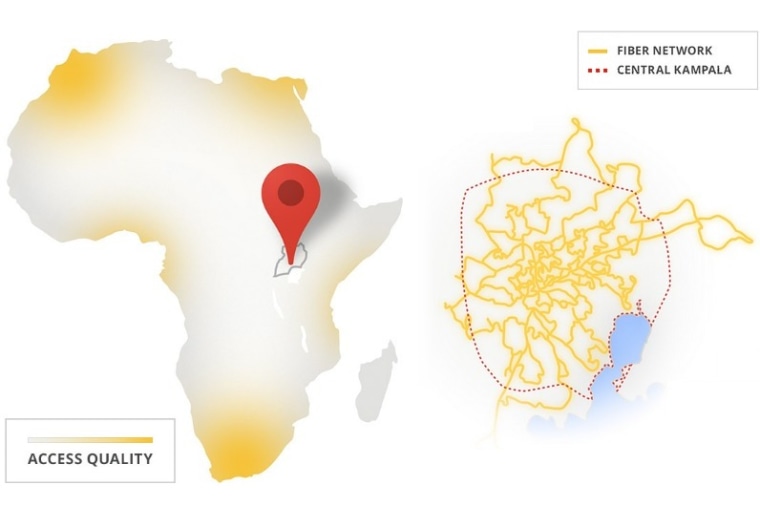Various American cities have rejoiced upon being chosen to receive Google Fiber high-speed Internet, displacing the expensive or slow service they once had. But the residents of Kampala, in Uganda, may rejoice more: their Internet is barely functional, and Google's "Project Link" may completely change their lives.
High-speed Internet in Africa is largely limited to the coasts, where connections can easily be made to undersea cables. But on the interior of the enormous continent, wild natural conditions and ongoing regional conflicts make the rollout of buried cable and mobile data networks difficult.
Google's Project Link (not to be confused with the balloon-based Project Loon) aims to connect parts of Africa that don't have the good fortune to be coastally-located, but could still benefit greatly from reliable, high-speed Internet. The first test case is Kampala, capital of Uganda, situated on the shores of the enormous Lake Victoria — but still hundreds of miles from the coast.
The idea is to install a fiber network fast enough that the burgeoning city will not outgrow it. It's not just faster broadband in homes, either: businesses, schools, and mobile networks can tap into it as well. Being reliably connected with the rest of the world creates business, social, and educational opportunities.
Of course, a growing African city, like any other, also needs many other things: good healthcare, enough food for everyone, and responsible governance. But Google is mainly in a position to provide connectivity between Kampalans, other Africans, and the rest of the world — which could help accelerate improvement in other, equally critical areas.
Devin Coldewey is a contributing writer for NBC News Digital. His personal website is coldewey.cc.
